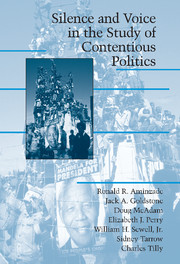30 results
Risk for depression tripled during the COVID-19 pandemic in emerging adults followed for the last 8 years
-
- Journal:
- Psychological Medicine / Volume 53 / Issue 5 / April 2023
- Published online by Cambridge University Press:
- 02 November 2021, pp. 2156-2163
-
- Article
- Export citation
Foreword
-
-
- Book:
- Existing Legal Limits to Security Council Veto Power in the Face of Atrocity Crimes
- Published online:
- 15 August 2020
- Print publication:
- 13 August 2020, pp xiii-xv
-
- Chapter
- Export citation
Foreword
-
-
- Book:
- The Legacy of Ad Hoc Tribunals in International Criminal Law
- Published online:
- 14 March 2019
- Print publication:
- 21 February 2019, pp xv-xvi
-
- Chapter
- Export citation
4 - The International Criminal Tribunals for the Former Yugoslavia and Rwanda
- from Part II - The Founders
-
-
- Book:
- The Founders
- Published online:
- 23 March 2018
- Print publication:
- 15 March 2018, pp 55-73
-
- Chapter
- Export citation
4 - The International Criminal Tribunals for the Former Yugoslavia and Rwanda
- from PART II - THE FOUNDERS
-
-
- Book:
- The Founders
- Published online:
- 23 March 2018
- Print publication:
- 15 March 2018, pp 55-73
-
- Chapter
- Export citation
International Judges: Is There a Global Ethic?
-
- Journal:
- Ethics & International Affairs / Volume 29 / Issue 3 / Fall 2015
- Published online by Cambridge University Press:
- 08 September 2015, pp. 249-258
-
- Article
- Export citation
The Role of Public Knowledge, Resources, and Innovation in Responding to the Ebola Outbreak
-
- Journal:
- Disaster Medicine and Public Health Preparedness / Volume 9 / Issue 5 / October 2015
- Published online by Cambridge University Press:
- 27 April 2015, pp. 595-597
-
- Article
- Export citation
Effects of 8 weeks oligofructose supplementation on appetite and body weight in overweight and obese adults
-
- Journal:
- Proceedings of the Nutrition Society / Volume 70 / Issue OCE6 / 2011
- Published online by Cambridge University Press:
- 27 January 2012, E374
-
- Article
-
- You have access
- HTML
- Export citation
Foreword
-
-
- Book:
- Forging a Convention for Crimes against Humanity
- Published online:
- 01 June 2011
- Print publication:
- 28 March 2011, pp xvi-xviii
-
- Chapter
- Export citation
Effects of toroidal field ripple on suprathermal ions in tokamak plasmas
-
- Journal:
- Journal of Plasma Physics / Volume 26 / Issue 2 / October 1981
- Published online by Cambridge University Press:
- 13 March 2009, pp. 283-307
-
- Article
- Export citation
Foreword
-
-
- Book:
- Courting Social Justice
- Published online:
- 27 July 2009
- Print publication:
- 08 September 2008, pp vii-xiv
-
- Chapter
- Export citation
Bosnia v. Serbia: Lessons from the Encounter of the International Court of Justice with the International Criminal Tribunal for the Former Yugoslavia
-
- Journal:
- Leiden Journal of International Law / Volume 21 / Issue 1 / March 2008
- Published online by Cambridge University Press:
- 01 March 2008, pp. 95-112
- Print publication:
- March 2008
-
- Article
- Export citation
Foreword
-
-
- Book:
- Truth Commissions and Procedural Fairness
- Published online:
- 27 October 2009
- Print publication:
- 14 August 2006, pp xi-xii
-
- Chapter
- Export citation
12 - Connecting Concepts to Each Other and the World
-
-
- Book:
- Grounding Cognition
- Published online:
- 22 July 2009
- Print publication:
- 10 January 2005, pp 282-314
-
- Chapter
- Export citation

Silence and Voice in the Study of Contentious Politics
-
- Published online:
- 05 June 2012
- Print publication:
- 17 September 2001
Contents
-
- Book:
- Silence and Voice in the Study of Contentious Politics
- Published online:
- 05 June 2012
- Print publication:
- 17 September 2001, pp ix-x
-
- Chapter
- Export citation
References
-
- Book:
- Silence and Voice in the Study of Contentious Politics
- Published online:
- 05 June 2012
- Print publication:
- 17 September 2001, pp 241-266
-
- Chapter
- Export citation
Index
-
- Book:
- Silence and Voice in the Study of Contentious Politics
- Published online:
- 05 June 2012
- Print publication:
- 17 September 2001, pp 267-280
-
- Chapter
- Export citation
5 - LEADERSHIP DYNAMICS AND DYNAMICS OF CONTENTION
-
-
- Book:
- Silence and Voice in the Study of Contentious Politics
- Published online:
- 05 June 2012
- Print publication:
- 17 September 2001, pp 126-154
-
- Chapter
- Export citation
Frontmatter
-
- Book:
- Silence and Voice in the Study of Contentious Politics
- Published online:
- 05 June 2012
- Print publication:
- 17 September 2001, pp i-viii
-
- Chapter
- Export citation



